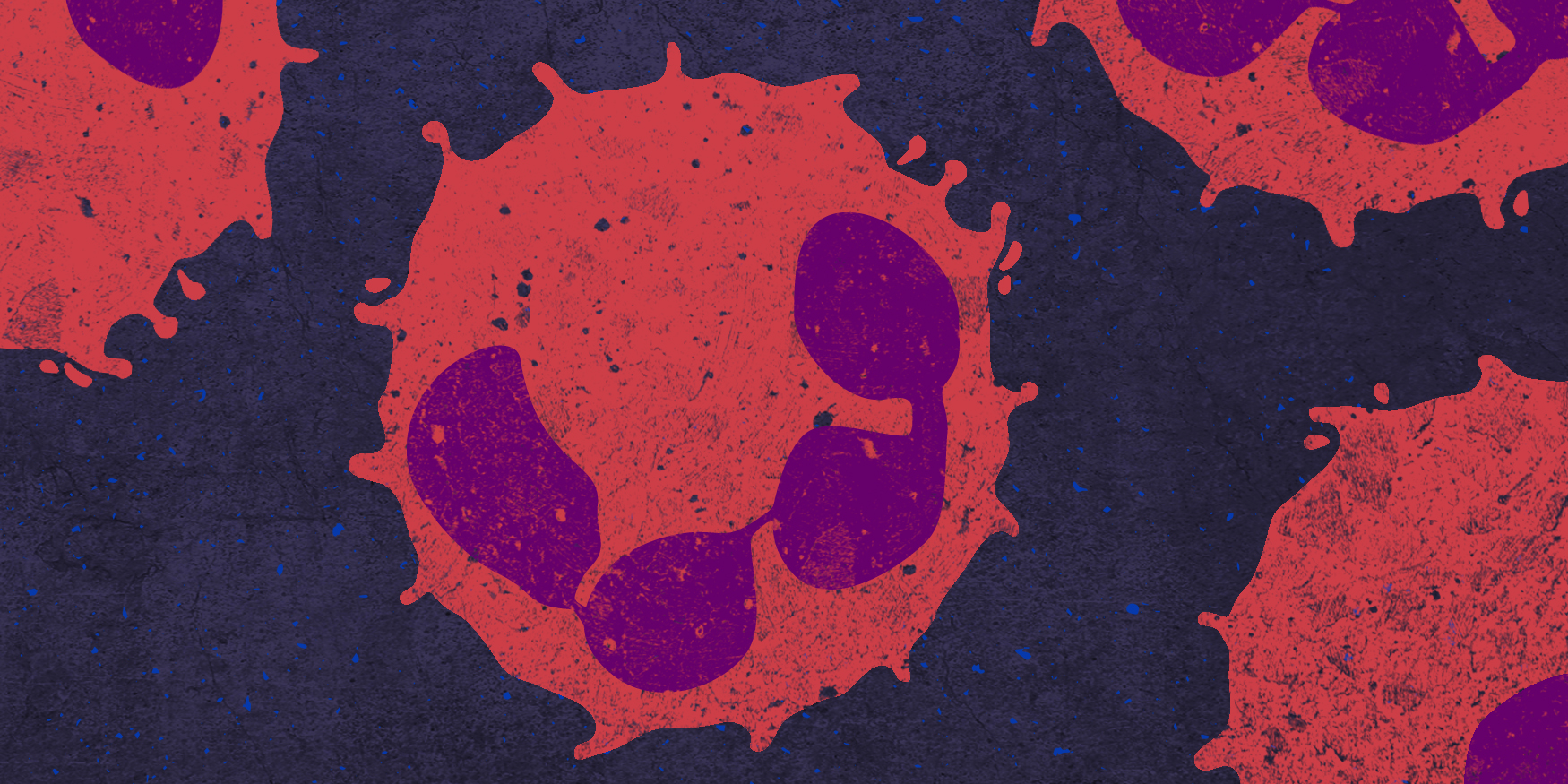Only soluble agonists activate the neutrophil NLRP3 inflammasome
Kaiwen Chen, Jelena Bezbradica and Kate Schroder from the Inflammasome Lab have discovered that soluble but not particulate or crystalline agonists activate the NLRP3 inflammasome in neutrophils. The study performed in a collaboration with Jenny Stow and Matt Sweet from the IMB, UQ and Christina Groß from the Techincal University of Munich, Germany, was recently accepted for publication in the European Journal of Immunology.
NLRP3 inflammasome function is triggered by a wide variety of signals indicating infection, injury, cell stress or exposure to irritants. A long standing mystery in the field is how NLRP3 co-ordinates an in vivo response that is appropriate to the nature of its activating signal. The discovery that neutrophils (eg. illustrated in the image above) drive IL-1B production in response to only a subset of NLRP3 agonists is the first to provide a potential mechanism by which in vivo NLRP3 inflammasome responses can be shaped according to the type of danger encountered.
Chen KW, Bezbradica JS, Gross CJ, Wall AA, Sweet MJ, Stow JL, Schroder K (2016).
The murine neutrophil NLRP3 inflammasome is activated by soluble but not particulate or crystalline agonists. European Journal of Immunology In press. Pubmed
Abstract
Neutrophils express pattern recognition receptors (PRRs) and regulate immune responses via PRR-dependent cytokine production. An emerging theme is that neutrophil PRRs often exhibit cell type-specific adaptations in their signalling pathways. This prompted us to examine inflammasome signalling by the PRR NLRP3 in murine neutrophils, in comparison to well-established NLRP3 signalling pathways in macrophages. Here, we demonstrate that while murine neutrophils can indeed signal via the NLRP3 inflammasome, neutrophil NLRP3 selectively responds to soluble agonists but not to the particulate/crystalline agonists that trigger NLRP3 activation in macrophages via phagolysosomal rupture. In keeping with this, alum did not trigger IL-1β production from human PMN, and the lysosomotropic peptide Leu-Leu-OMe stimulated only weak NLRP3-dependent IL-1β production from murine neutrophils, suggesting that lysosomal rupture is not a strong stimulus for NLRP3 activation in neutrophils. We validated our in vitro findings for poor neutrophil NLRP3 responses to particles in vivo, where we demonstrated that neutrophils do not significantly contribute to alum-induced IL-1β production in mice. In all, our studies highlight that myeloid cell identity and the nature of the danger signal can strongly influence signalling by a single PRR, thus shaping the nature of the resultant immune response.
Copyright © 2017 - The University of Queensland

